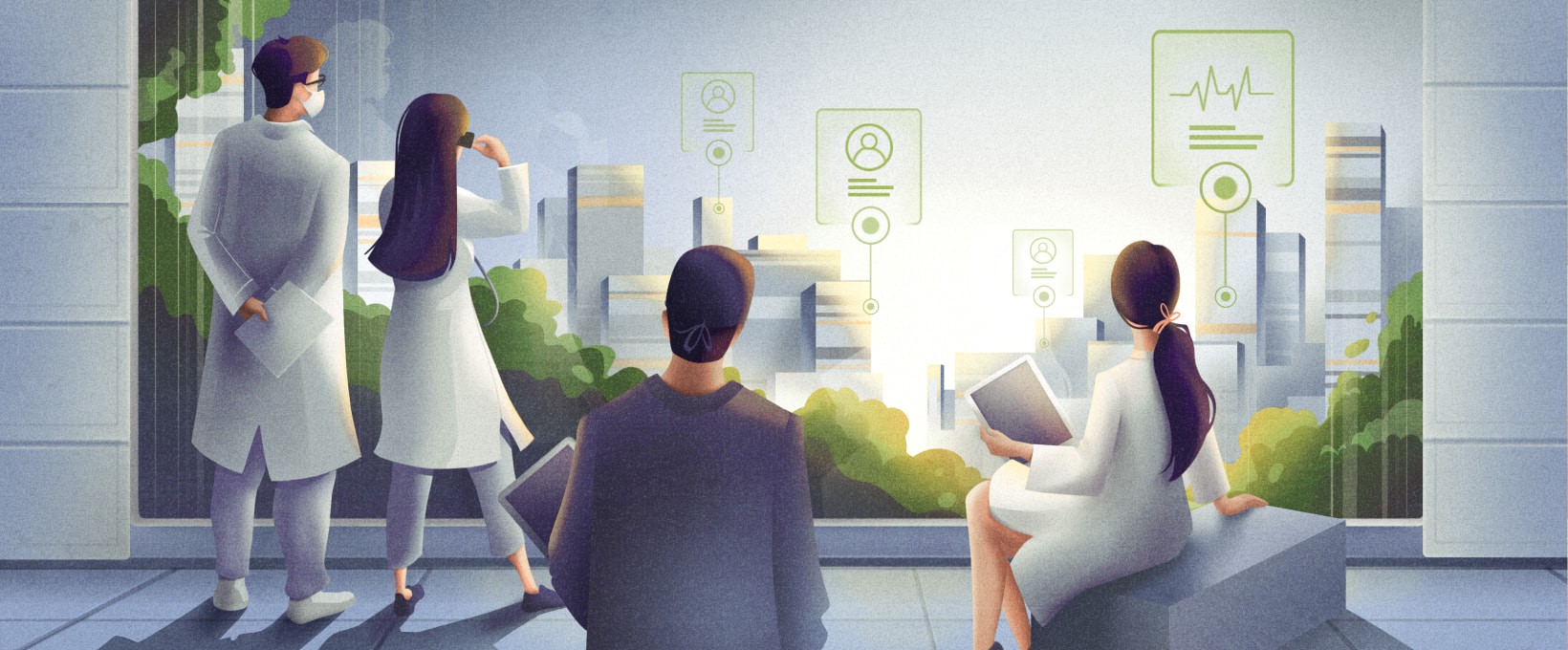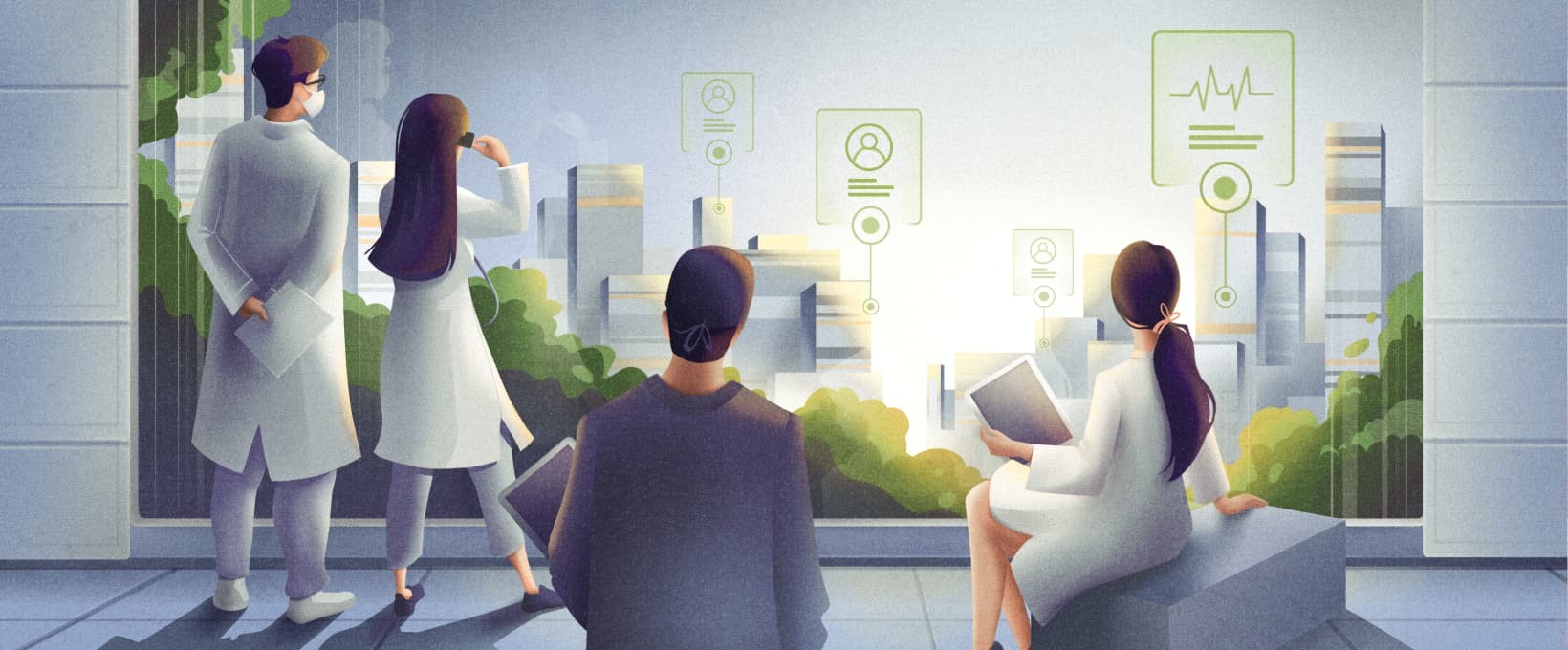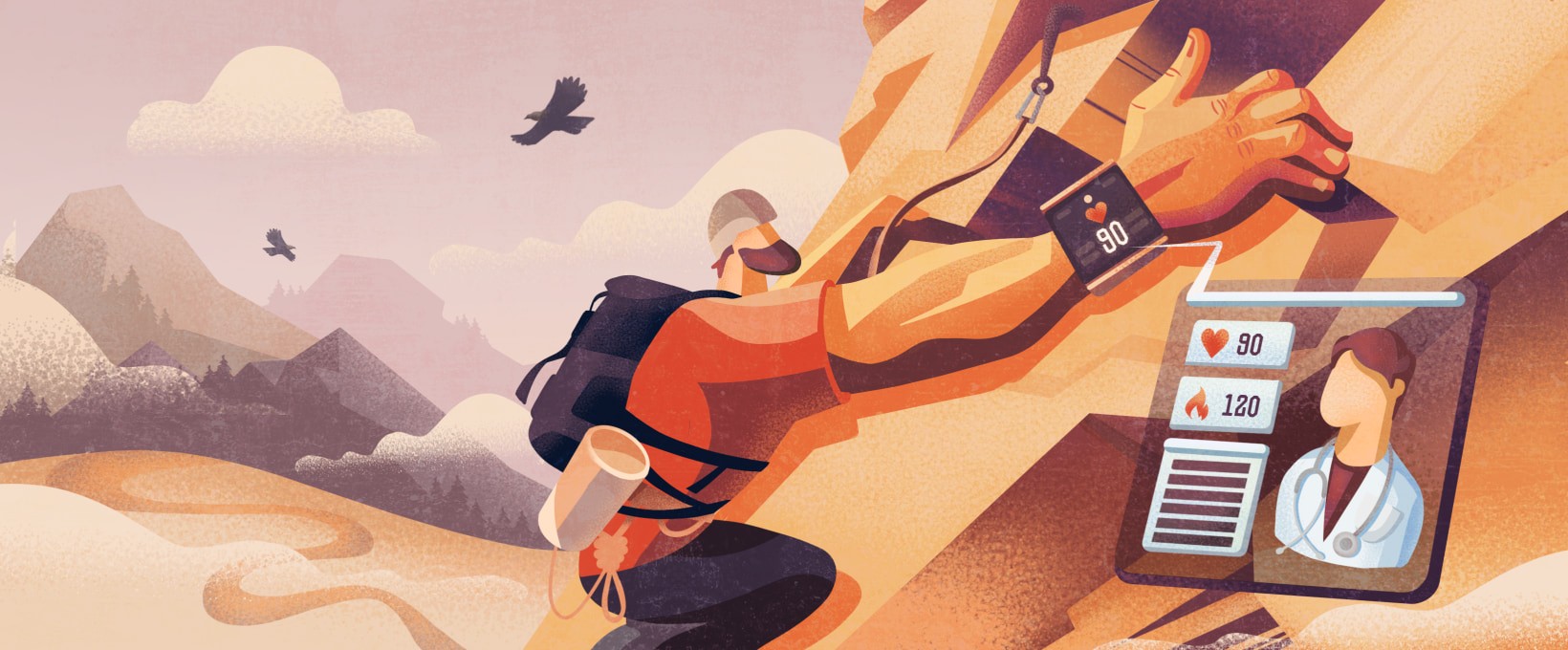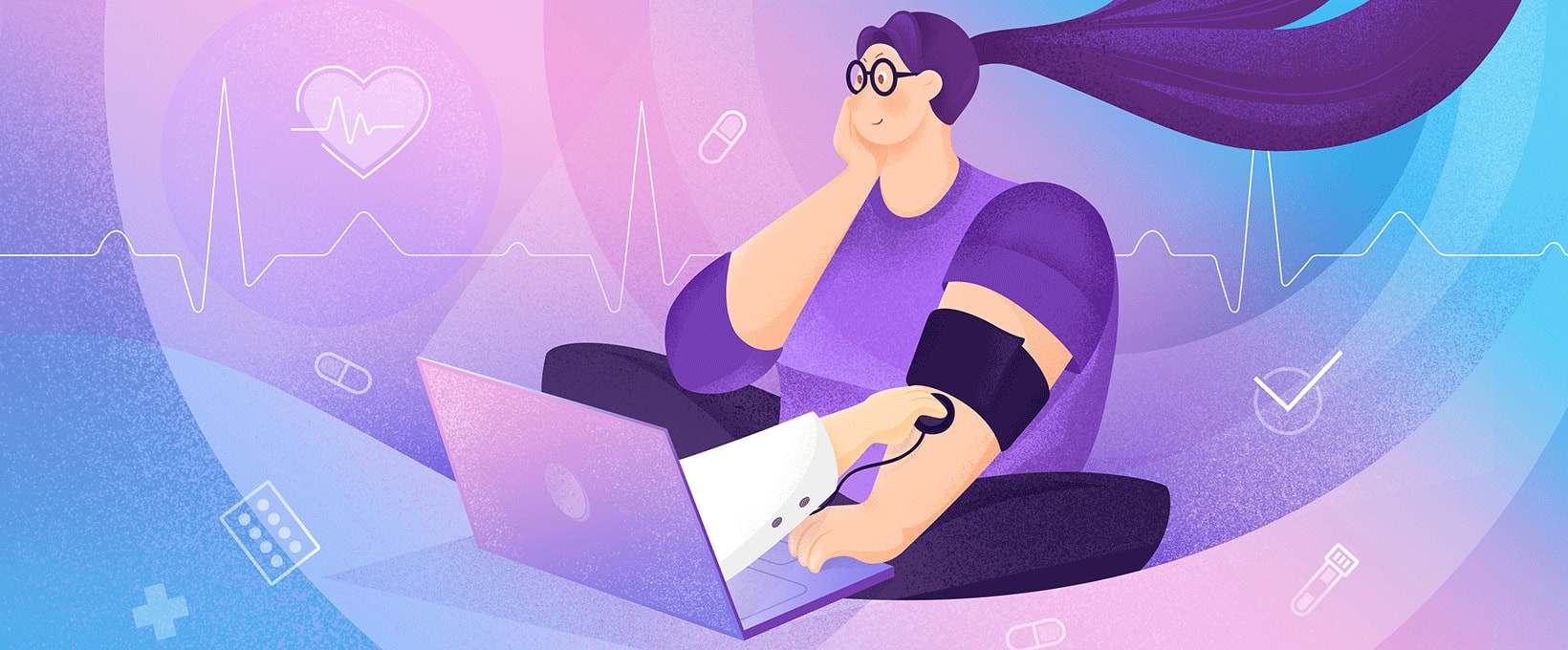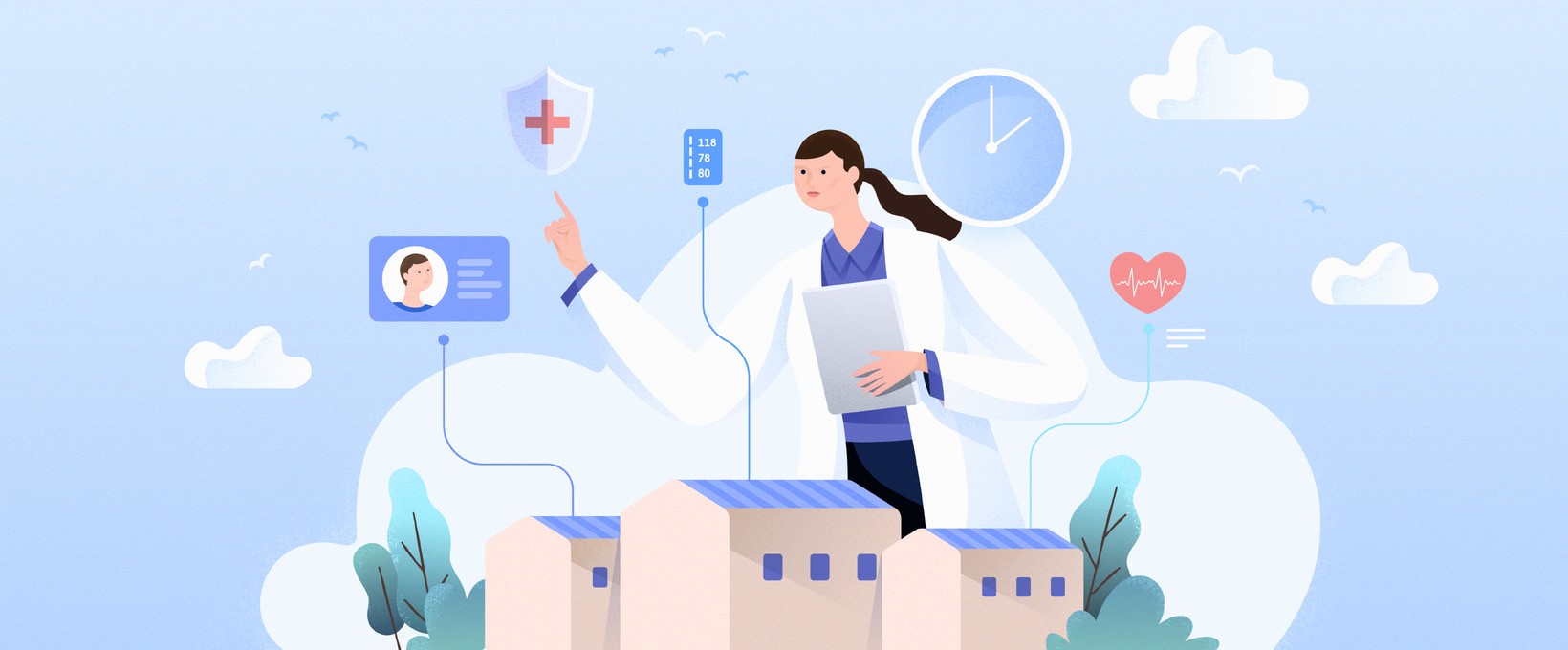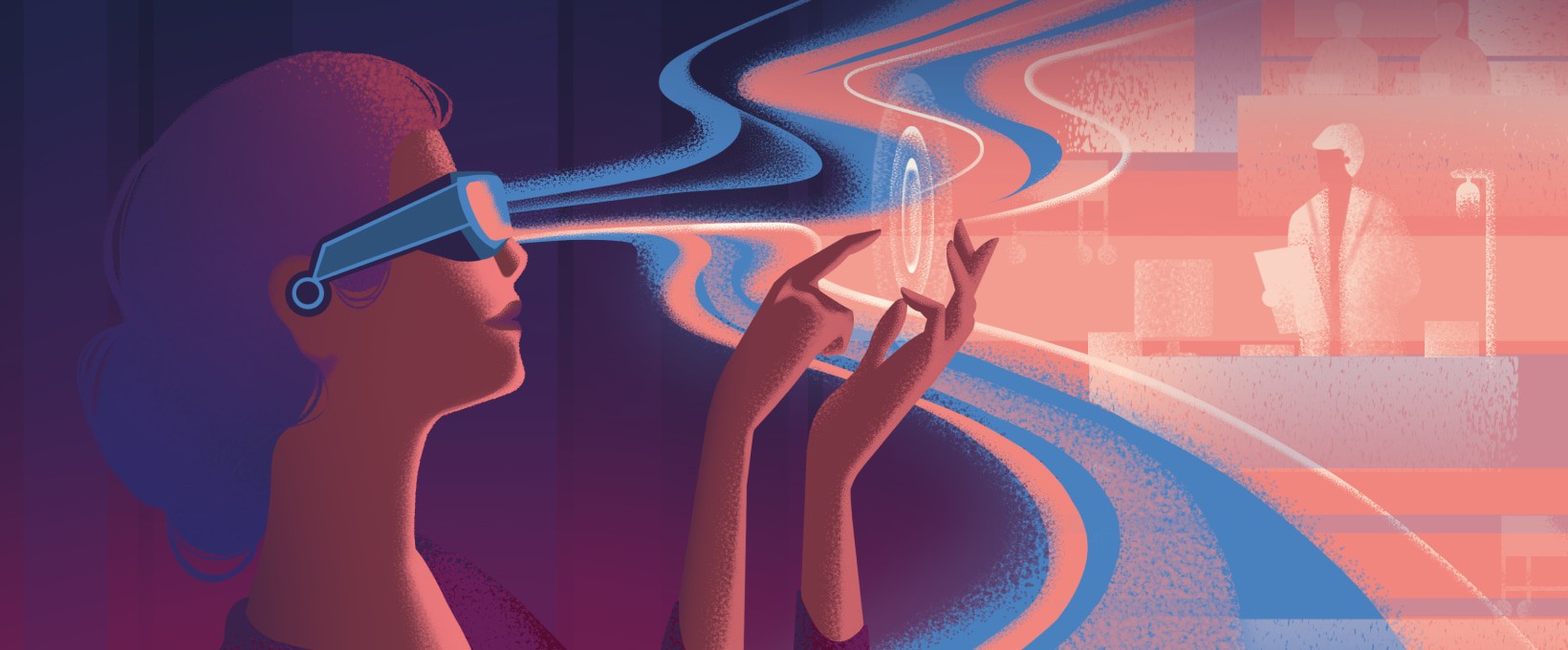- Some statistics concerning blockchain applications in healthcare
- Obvious blockchain opportunities for healthcare revealed
- Some promising scenarios of the use of blockchain in healthcare
- Not without shortcomings. Challenges of blockchain in healthcare, simply put
- Andersen as a healthcare development partner ever-ready to reveal benefits of blockchain in healthcare
When blockchain applications in healthcare are at stake, one must practice caution with estimates and forecasts. Just five years ago or so, it was commonplace to say that blockchain would rapidly revolutionize all sectors, with not a single exception observed. That didn’t happen. In direct contrast, that hype has now completely faded away. So far, the impact of blockchain remains limited, including the use of blockchain in healthcare. This fact, however, doesn't mean that blockchain isn’t transforming even this heavily regulated and sensitive domain right now. Some shifts are taking place. The idea behind this piece by Andersen’s team, as a provider of healthcare development services, is to dive deeper into how exactly these changes are happening.
Some statistics concerning blockchain applications in healthcare
Let’s start our ambitious discussion with a straightforward question, in a nutshell: “What is blockchain in healthcare”?
Our definition for blockchain in healthcare can be worded as follows: any application of blockchain technologies in the domain to upgrade and advance different facets of medical care practices. For instance, data management, information security, and optimized processes are frequently discussed. What unifies these varying aspects is that they all involve building upon a decentralized and dispersed ledger to handle details, transactions, and records.
What about the current adoption rates pertaining to the use of blockchain in healthcare in today’s landscape?
Back in 2022, the market size of blockchain in healthcare was a humble $0,76 billion. Around 2023, it is projected to hit $14.25 billion. The technology is still at its start, but it is gaining pace. Here are two more facts to substantiate this assumption:
- Per TechReport, 40% of high-ranking health executives perceive blockchain as one of their priorities;
- Some other estimates claim that over 50% of applications will be relying on blockchain, to some extent, by around 2025.
Such expectations might be over-optimistic. Yet, there must be significant potential behind blockchain applications in healthcare. Let’s take a closer look at pros, use cases, probable constraints, and more.
Obvious blockchain opportunities for healthcare revealed
One can name a lot of issues blockchain could fix in healthcare. To list some:
- Back in 2021, more than 50 million patient records were breached;
- In such developing locations as South America or Africa, around one third of all drugs could be counterfeit ones;
- Scalability of healthcare services, their data-related content and the way records are circulated and exchanged, is also seen as an urgent issue.
And that is where blockchain comes to the rescue, due to its transformative potential in the technological domains. It holds true not only for healthcare, but for all domains that need to store, archive, and present data.
Indeed, there is nothing particularly outstanding about the blockchain opportunities for healthcare, when compared with the advantages this technology offers to other niches with their respective offerings and applications. It is still about scalability, secrecy, simultaneous data safety and transparency coupled with connectivity and compatibility:
- Boosted data safety levels, thanks to immutability of records (after it is recorded on a blockchain of choice, it is deemed to be unalterable), decentralization (decentralized applications and dispersed networks of nodes alleviating risks associated with single points of control or failure), and dependable cryptographic techniques;
- Greater transparency together with traceability and auditability caused by the fact that a public ledger makes the entire history of all transactions available. Each record will not only be visible, but time-stamped, which is a plus for such a heavily regulated domain as healthcare in general and healthcare applications in particular. This use property can greatly contribute to resolving compliance-related issues;
- Portable and self-sovereign identity management constitutes another advantage, as it might give both specialists and patients control over their personal information in the data-sensitive world of healthcare;
- New horizons open for supply chain management applications, as varying blockchain technologies can be applied to monitor, corroborate, and confirm the authenticity of products throughout entire use processes, alleviating healthcare-specific risks;
- Finally, smart contracts, viewed as self-executing contracts, when the terms of an agreement are embedded right into your code. They automate processes, enforce rules, and eliminate the relevance of brokering parties. Such a feature can streamline processes and make the provision of services more streamlined and cheaper.
Some promising scenarios of the use of blockchain in healthcare
So, now it would be logical to ask: “How can blockchain be used in healthcare, from a more practical perspective?” Below, we will name some use directions:
- Blockchain-powered patient control applications, empowering patients to exercise more control over their own health digital docs. In this scenario, they can grant access to their health records to a specific provider and are able to revoke it at any moment, improving privacy.
- Remote patient monitoring use cases and applications, based on IoT devices that securely transmit patient records to the blockchain, enabling real-time monitoring of patient health and medication adherence.
- Drug traceability can be maintained by the new class of applications. Decentralized applications can be applied to track the supply chain of pharmaceuticals. It can assist with corroborating the genuineness of drugs, reducing counterfeit medications, and boosting patient safety.
- Clinical trials can be facilitated, owing to better management of clinical trial records, ensuring the transparency of trial results and reducing the likelihood of fraud. This can accelerate the work on new medicines and therapies. More than that, fundamental research and analytics could also benefit. For instance, researchers can access anonymized patient records on the ledger for studies and analytics while preserving patient privacy and consent.
- Medical research collaboration techniques are also in the right position to benefit from blockchain technologies. The latter are capable of facilitating secure and efficient cooperation between different medical research institutions and organizations by ensuring lasting data coherence.
- Processing of claims built on smart contracts. In this use case, new applications could automate and expedite various claim-related and payment-related procedures for insurers. This diminishes managerial costs and, again, fraud.
- Speaking of healthcare payments, blocks could simplify and secure them not only in the context of insurance. Micropayment applications for telemedicine services and info sharing can be enabled.
- Decentralized apps can be applied for secure and portable patient identity management. Patients will be able to fully control their identities and access to healthcare services.
- Finally, in terms of regulatory compliance, blocks can assist healthcare organizations in complying with regulations like GDPR and HIPAA by providing a secure and auditable management system.
Not without shortcomings. Challenges of blockchain in healthcare, simply put
Simultaneously, as with any other game changer, there exist certain risks and barriers associated with any notion of implementation of blockchain in healthcare. After all, medical care is, again, a rigorously regulated and sensitive domain.
Indeed, while the healthcare development technology we are discussing holds great promise for the medical care industry, it comes with a range of obstacles. Those must be tackled for feasible results.
Wrapping up, some of the key challenges of blockchain in healthcare include:
- Scalability. Public networks, e.g. ones like BTC and ETH, can face scalability issues when handling a great volume of transactions. Healthcare systems generate enormous volumes of info, and scaling blockchains to accommodate that data while maintaining adequate performance can constitute a painful use problem;
- Interoperability. Ensuring interoperability between various web3 applications and legacy platforms could be complex. Existing systems might use heterogeneous standards and formats, making integration with digital ledgers a non-trivial mission;
- Privacy and use security concerns. While public ledgers provide enhanced security for info, that also introduces fresh privacy concerns. Patient info, even if encrypted, is visible on a public ledger, potentially allowing for re-identification or info linkage (if not properly managed);
- Regulatory compliance. Healthcare is, over and over again, a highly regulated industry with strict protection laws (e.g., HIPAA in the United States, GDPR in Europe) applied to applications. We at Andersen know that better than many others. Implementing blockchain while adhering to those regulations could be challenging, particularly regarding privacy and use consent management;
- Standardization. The lack of uniform protocols and formats for healthcare details on the public ledger, when applications are involved, can hinder exchange and interoperability. Refining and adopting industry standards is crucial to address this use challenge. Unluckily, that process hasn’t started yet;
- Costs and resource constraints. Implementing and maintaining a web3-based system could be a costly and resource-intensive adventure. Smaller healthcare organizations might struggle to invest in the necessary infrastructure and expertise;
- Adoption and integration problems. Convincing medical organizations, institutions, and patients to adopt and use decentralized technology could be a slow and challenging process. There is often resistance to change, as well as skepticism concerning new approaches in the healthcare niche;
- Data onboarding obstacles. Migrating existing info onto a shared ledger could be a complex and time-consuming ordeal. Ensuring the correctness and integrity of historical info poses obvious challenges;
- UX. Web3 applications often make users manage cryptographic keys and navigate complex user interfaces. Improving the user experience while maintaining security is a continual pain in the neck;
- Energy consumption. Proof-of-Work (PoW) options, such as BTC and ETH, are energy-intensive, inevitably. Healthcare organizations aiming for sustainability and environmental friendliness might need to consider alternative consensus mechanisms or newer blockchain networks (new options are regularly released — most of them are quick to fail, however);
- Disturbing bugs in smart contracts. Yes, in actual practice, smart contracts are able to automate multiple processes. Concurrently, they can also contain vulnerabilities that, if “properly” exploited, will lead to financial or info safety issues and leakages;
- Deficit education and awareness. A certain shortage of relevant expertise in the industry concerning the subject matter can be observed. Medical care professionals, administrators, and in-house IT staff are often in need of extra tutoring and education to grasp the essence of and effectively use blockchain-based approaches;
- Trust and positive perception among target audiences. Nurturing trust among users and stakeholders of an application is a must-have. The perception of blockchain as a nascent phenomenon and somehow related to speculative cryptocurrency niches could bring about some skepticism.
Andersen as a healthcare development partner ever-ready to reveal benefits of blockchain in healthcare
To sum up, blockchain technology has several potential roles, with far-reaching consequences, in the field of medicine. As such it is already being explored for various purposes, primarily focused on enhancing security, transparency, and data management.
Concurrently, while blockchain has great potential in medicine, it's of importance to note that there are challenges and barriers to its widespread adoption, including regulatory concerns, scalability issues, and interoperability problems.
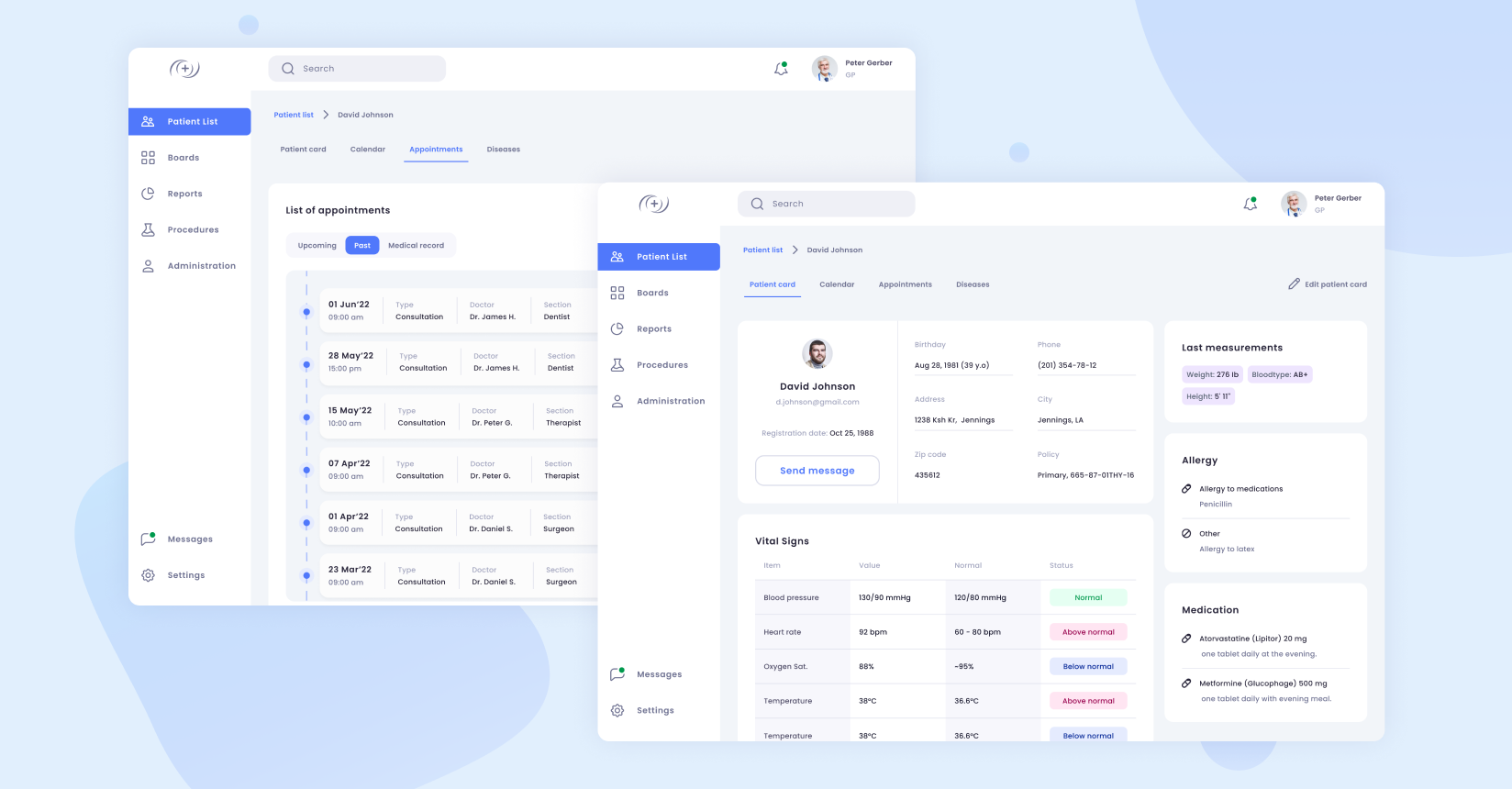
Still, as the technology continues to move forward, it may become an increasingly important tool in improving healthcare systems and patient outcomes. New networks emerge, novel approaches are tried, and groundbreaking products are released. Gradually, all the existing challenges will be overcome, and the new technology will dominate the landscape. It would be reasonable to prepare your company for this new age. We can become your trusted partner on this path.
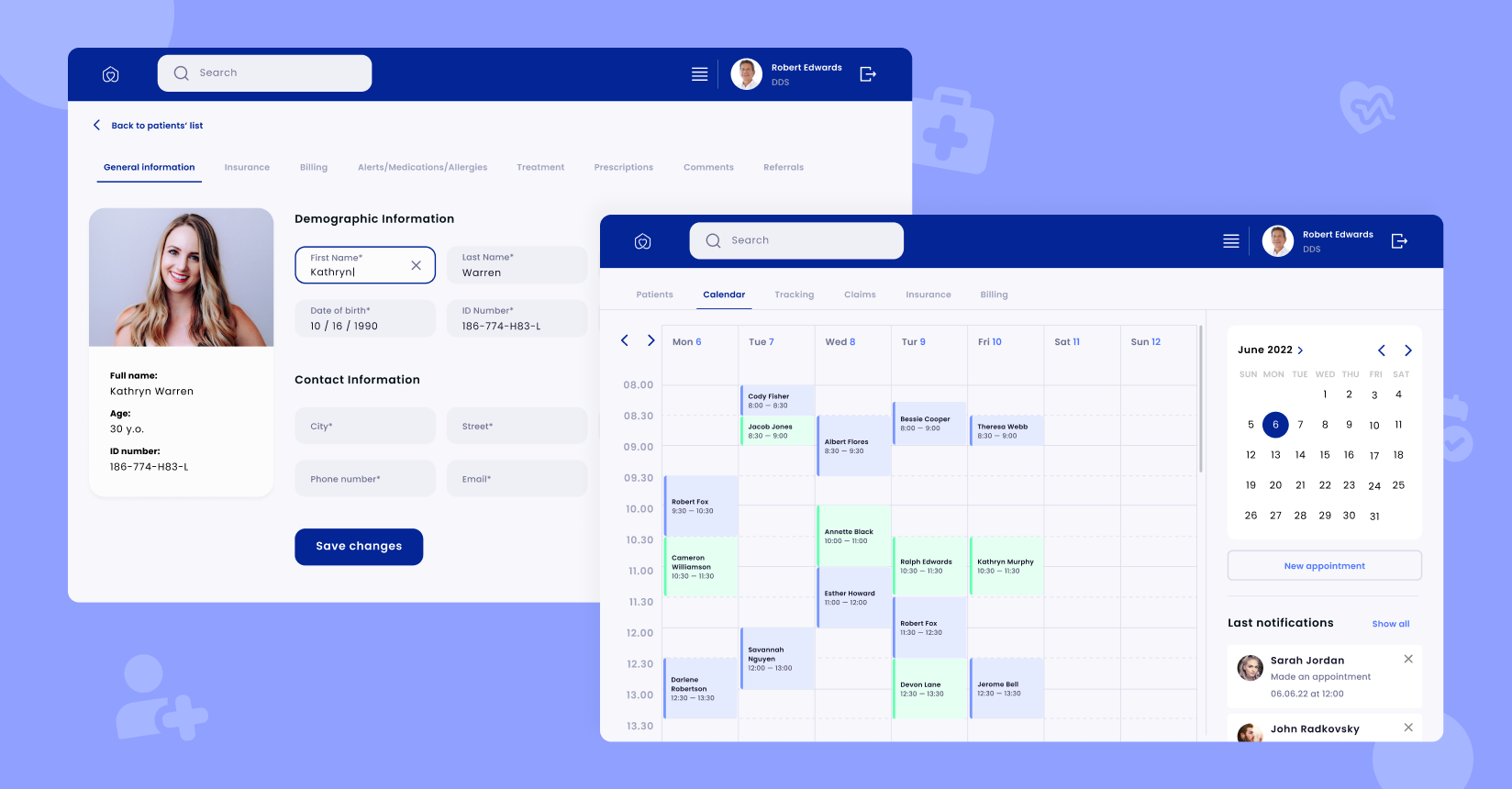
Andersen runs a team of skilled and diligent custom healthcare development experts. We are prepared to assist you with implementing your plans.
Add some Web3 to your healthcare software development initiatives and applications. We are a reliable candidate to unlock such use benefits of blockchain as:
- Higher security;
- Optimized costs;
- Strengthened scalability;
- Dependable transparency.







